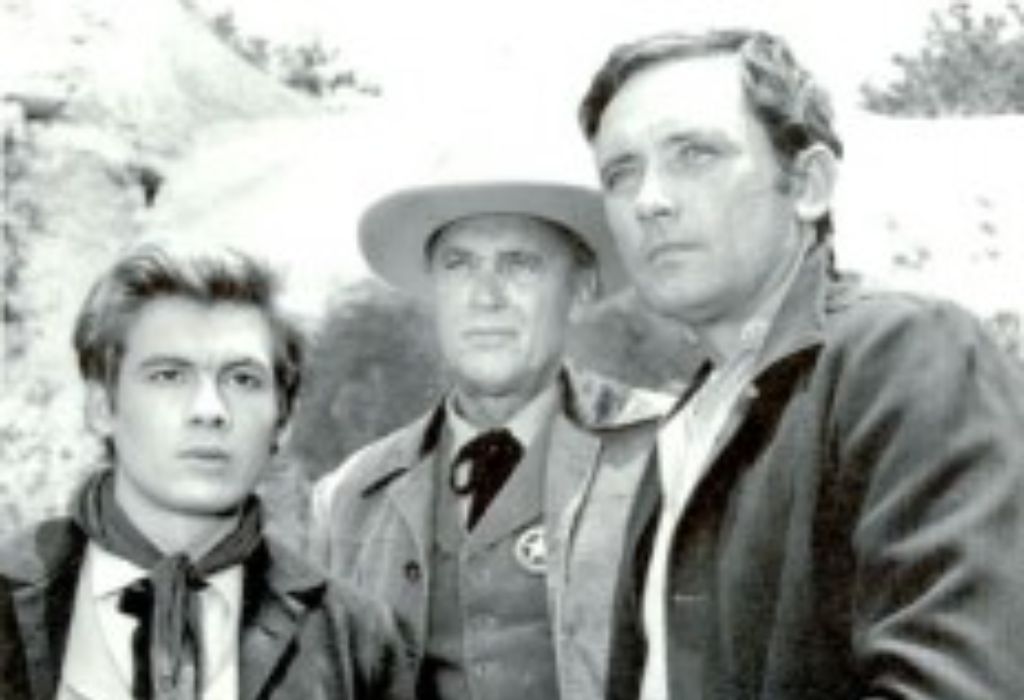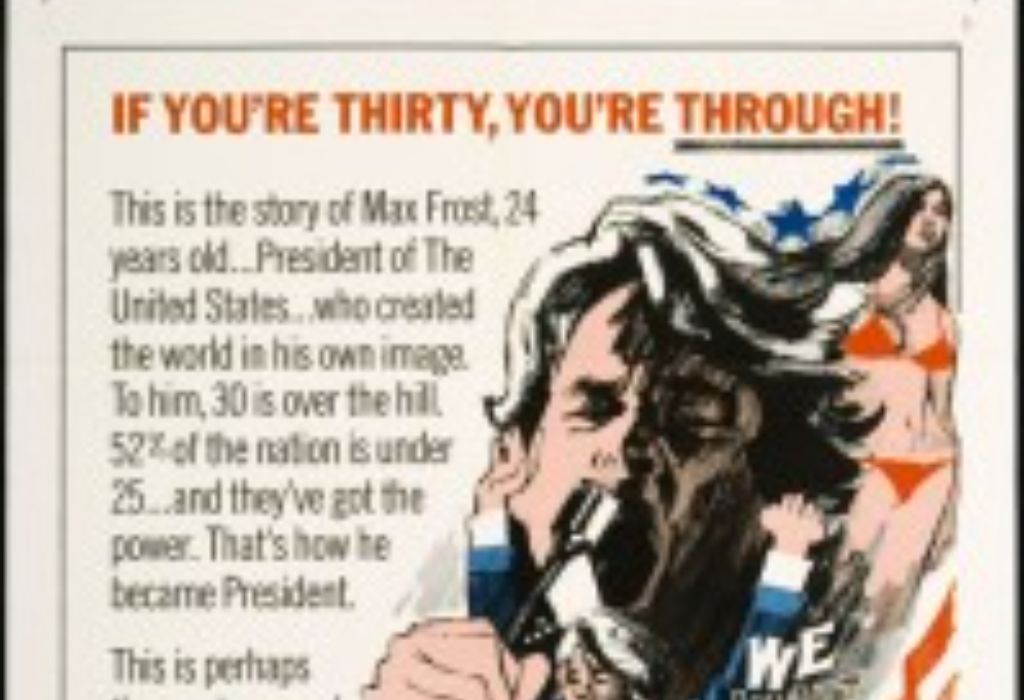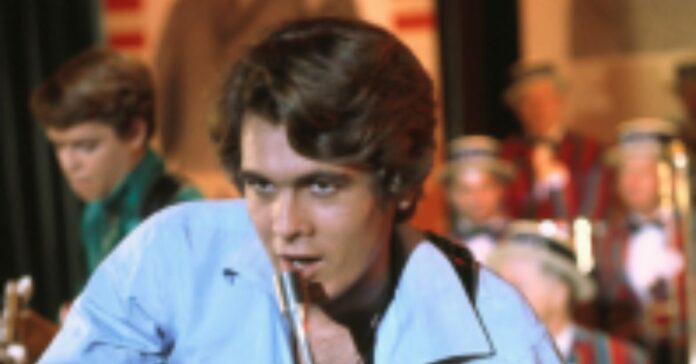Christopher Jones, once a promising Hollywood actor of the 1960s, captivated audiences with his brooding charisma and raw talent.
Rising to fame with roles in “Wild in the Streets” and “Ryan’s Daughter,” Jones seemed destined for stardom.
However, plagued by personal struggles and disillusionment with the industry, his career took a tumultuous turn.
Part 1 explores Jones’ enigmatic rise to fame, setting the stage for a captivating tale of success, turmoil, and ultimate redemption.
Whatever Happened To Christopher Jones? (Part 1)
Christopher Jones, a rising star often likened to James Dean and known for his roles in films like The Looking Glass War and Ryan’s Daughter, passed away at the age of 72, as reported by The Hollywood Reporter in his obituary on January 31, 2014.
Upon seeing this news on my Facebook feed the following day, I felt a pang of familiarity and sadness, emotions seldom stirred by the passing of more famous Hollywood personalities.
I introduced Christopher Jones in the mid-1970s through a television airing of Wild in the Streets.
At the time, I was deeply enamored with James Dean, and Jones, with his striking resemblance and charisma, captivated me, almost seeming like a reincarnation of Dean.
Only later did I discover Jones had already left the industry when I became aware of him.

Quentin Tarantino remarked in a 1999 E! True Hollywood Story episode, “He had that spark. He embodied a movie star.
He bore a resemblance to James Dean, but Christopher Jones didn’t carry himself with the same solemnity.
He exuded the same sensuality and magnetism as Jim Morrison. He was on the brink of superstardom, as significant as anyone!”
Christopher Jones skyrocketed to fame with the release of Wild in the Streets in July 1968, where he portrayed a rock star who seized political power by manipulating the youth vote and incarcerating those over 30 in LSD-induced camps.
“For teenagers in 1968, Christopher Jones was an irresistible force in Wild in the Streets,” notes the author of his website.
Jones retired from acting after starring in just four additional films following his breakout role in Wild in the Streets, eventually becoming a mysterious and captivating figure with a dedicated following.
Pamela Des Barres noted in her introduction to a rare 1996 interview with him, “Over the past 26 years, Jones has been the subject of numerous rumors – that he was involved in drug addiction, lived on the streets, turned to hustling, or had been institutionalized – his vanishing act granting him an almost mythical status among industry insiders.”
When asked by Playboy magazine about the downside of fame, Jack Nicholson famously replied, “There is none.”
Yet Jones walked away from stardom, its perks, and a built-in audience, leaving many to wonder: what became of Christopher Jones?
Christopher Jones, originally named William Frank Jones, was born on August 18, 1941, in Jackson, Tennessee, the younger of two sons to J. G.
Jones and Robbie Jones. During their early years, the family resided above a grocery store where J. G. worked.
Robbie, a talented but mentally troubled artist, was committed to the state hospital in Bolivar, Tennessee, in 1945, passing away in 1960.
Christopher JonesJones held only one memory of his mother: “I can recall her lifting me up once,” he shared, “but I cannot recall her appearance.”
After Robbie’s commitment, Billy (Christopher Jones) was sent to live with his aunt, while his brother Robert stayed with their father.
Upon his aunt’s suggestion, Billy and Robert were placed in Boys Town (then called Gailor Hall) in Memphis, Tennessee, where Billy remained until he was nearly 16.
Despite his resistance to certain aspects of the institution, such as the uniform and academics, he showed promise in sketching, leading Boys Town’s executive director, Joe Stockton, to secure an art school scholarship for him.
In 1988, Robert Duke recounted to journalist Michael Donahue that he and Billy became close friends after being coerced by older boys to fight each other for their amusement, likening the experience to the cruelty inflicted on animals like dogs or chickens, which was sadly commonplace at the time.
Duke provided insight into Jones’ troubled personality, stating, “When you spend a long time in an institution like that, you become institutionalized.
You learn not to form connections with others… You develop a tendency to isolate yourself emotionally to protect against the transient nature of relationships. I believe Billy Frank embodied this pattern.”
According to Donahue’s report, Duke remembered Jones as moody, reserved, and solitary, lacking many friends but deeply admired James Dean.
Dean became Billy’s role model following a pivotal moment that influenced his desire to pursue acting. Joe Stockton called Billy into his office on a scorching summer day when he was around 14 or 15.
Reflecting on the encounter, Jones recalled, “I was convinced I was in trouble for something.
Instead, he handed me a copy of Life magazine featuring James Dean on the cover.
After a pause, he said, ‘You know Billy, you bear a striking resemblance to this guy!’ As I examined the photo, he stared at me intently. I saw the likeness, though I had never seen a picture of James Dean before.”
“Dean had this subtle sophistication to him, and although I’ve always been compared to him, back then, I wanted to be seen as more flamboyant, like Elvis,” Jones remarked.
“But after watching Love Me Tender [1956] and East of Eden [1955] around the same time, I recognized James Dean’s brilliance. I’ve always felt torn between these two role models.”
Billy’s admiration for Dean grew stronger after he read about the actor’s fatal car crash. “Sometimes I feel like I’m carrying on James Dean’s legacy… like I’m a continuation of it all,” he later expressed.
“A piece of the puzzle went missing when Dean died so young and tragically, but he was the real deal. Most people fear death – and that’s what separates the real from the rest, whether they fear it or not.
Dean was something extraordinary, unlike any actor before or since. I’m drawn to that kind of mortality.”
As Jones’ fame rose in the mid-1960s, inevitable comparisons to James Dean emerged. Jones’ own life story bore resemblances to Dean’s and the character of Cal, whom Dean portrayed in East of Eden.
Dean’s father sent him to live with relatives after his mother died from uterine cancer when he was nine, leaving him feeling like an orphan.
He had a strained relationship with his father as an adult, who didn’t support his acting aspirations.
“My mother passed away when I was young, and I used to cry at her grave, asking, ‘Why did you leave me?'” Dean recounted to Dennis Hopper.
“But that turned into determination – ‘I’ll prove myself! I’ll be great!'”
Jones expressed that he wasn’t very close to his father, describing him as tall and resembling Paul Newman.
He shared that he went to live with his father at 16, who signed him into the Army. Despite this, he held no resentment towards his father and still loved him.
He also mentioned feeling hatred towards his mother for what he believed was her dying, not realizing she was alive but institutionalized.
At 15 Jones escaped from Boys Town and became involved with an older married woman in Memphis. He stated that she was the more assertive one in their relationship.
Following this, he developed a pattern of leaving women after living with them. Meanwhile, his father remarried and had more children while Jones remained at Boys Town, only visiting occasionally during holidays.
Jones attempted to reunite with his father after leaving his teenage girlfriend, living with him until he joined the Army at 16. Dysfunctional relationships and family tragedies marked Jones’ life.
He recounted a disturbing incident involving his father and a young woman, as well as the tragic case of Timothy Roman, whom Jones claimed was his son, killing his mentally disturbed mother, actress Susan Cabot, in 1986.
Jones explained that he had only seen Timothy once, as Susan had told him his father was British and deceased, following their brief three-week relationship. Tumultuous relationships and unfortunate family events characterized Jones’s life.
Contrary to studio biographies claiming Jones served two years in the Army before deserting, he went AWOL after just two days.
He stole a car and traveled to New Orleans, then to New York with a friend, where they made a pilgrimage to James Dean’s grave and childhood home in Fairmount, Indiana.
Dean’s relatives, the Winslows, known for accommodating Dean enthusiasts, must have been surprised to see Jones, who strongly resembles Dean.
Jones recalled visiting Dean’s room, finding his jeans laid out as if he would return, perhaps momentarily giving the Winslows the illusion that Dean had returned.
Acting wasn’t on Jones’ radar at the time. He admitted to being unsure of his aspirations, but he turned himself in upon the advice of someone aware of his AWOL status.
This led to a six-month stint on Governors Island, an experience he likened to prison, where he encountered inappropriate advances from a guard.
Jones then found solace with the wife of a department store’s head buyer, whose husband was incarcerated for drug-related charges.
He became infatuated with her, describing her resemblance to Marilyn Monroe. During this time, he delved into the arts, studying under Edward Melcarth and working as his apprentice in painting and sculpting.
Despite his immersion in artistic pursuits, he ultimately found his passion in acting.
Jones encountered an actor who introduced him to director Frank Corsaro, a teacher at the Actors Studio and a friend of James Dean.
Adopting the stage name Christopher Jones (coincidentally sharing a name with the Mayflower’s captain), he commenced auditing classes at the Actors Studio.
Corsaro reminisced about Jones, describing him as intermittently committed but possessing personal charisma and natural acting instincts akin to Dean’s.
Corsaro provided Jones with a form of scholarship due to his financial constraints. Like Dean, Jones exhibited talent but needed disciplined dedication to the craft.
Despite this, Jones attracted the attention of Shelley Winters, who took an interest in him and offered support.
Corsaro cast Jones in his 1961 Broadway production of Tennessee Williams’ The Night of the Iguana, portraying one of two Mexican cabana boys alongside James Farentino.
Initially starring Bette Davis, the production featured Winters, who often socialized with Jones, Farentino, and occasionally Alex Cord, exploring New York’s nightlife.
Jones claimed to have had a romantic involvement with Winters, although this is not corroborated in Winters’ autobiography, which discusses her relationship with Cord but does not mention Jones.
Jones landed his debut role as a street gang member in an episode of the television series “East Side, West Side” (1963-1964), starring George C. Scott.
Recalling the experience, Jones mentioned his struggle to stay still during filming, prompting Scott to immobilize him by placing his foot on his own when the director called “Action.”
While socializing with Shelley Winters at Downey’s, a famous New York restaurant frequented by figures in the entertainment industry, Jones requested an introduction to Susan Strasberg, daughter of Lee Strasberg, the head of the Actors Studio.
However, Winters declined, citing her disapproval of Jones’ treatment of his girlfriends. In her autobiography, Winters remembered Jones expressing his intention to marry Strasberg, while Jones himself allegedly made a cruder remark to Pamela Des Barres.
Jones and Strasberg entered a turbulent relationship and marriage, which she detailed extensively in her 1980 memoir “Bittersweet.”
Strasberg reminisced about her first encounter with Jones at Downey’s, describing his physical appearance and attire.
She also recounted a notable incident at her parents’ Fire Island beach house involving Jones, her brother, Jerry and Marta Orbach, actor Richard Bradford, director Frank Corsaro, and a group of Corsaro’s students, including Jones.
“That night, during a thunderstorm, was both terrifying and breathtaking,” Strasberg recounted.
“Christopher impulsively tore off his shirt and dashed onto the beach in the pouring rain, announcing he was going swimming.
Despite our pleas for him to return indoors for safety, he instead engaged in a rhythmic, erotic dance amidst the lightning flashes.
In that moment, he seemed to embody the storm itself—both beautiful and perilous.”
According to Strasberg, Jones harbored resentment towards those who had a privileged upbringing.
He shared his humble background, describing growing up in a shack with basic amenities in Tennessee, which he considered indicative of being poor white trash.
On one occasion, Jones attempted to provoke an argument with Lee Strasberg, expressing disdain for those he perceived as trying to suppress vitality.
He dismissed the value of learning from books, paraphrasing Nietzsche’s notion of finding freedom and happiness through pure will to justify his beliefs.
“Christopher, whether in this setting or back in New York, disapproved of my circle of friends,” Strasberg wrote.

“He criticized them as being too conventional and intellectual.” She claimed that Jones influenced her to experiment with mescaline and other drugs, urging her to break free from societal constraints.
Strasberg admitted to a desire for unconditional love, leading her to acquiesce to Jones’ demands, even when they conflicted with her values.
Eventually, drug use became a bond between them and their peers, with Strasberg acknowledging an emotional dependence rather than a physical addiction.
Despite this, she maintained discipline in her professional endeavors amidst the chaos of their relationship.
Jones later confessed to physically harming Strasberg and accidentally firing a shotgun in their apartment.
However, he refutes her portrayal of their relationship as a nightmare, including her assertions that he coerced her into a drug-filled lifestyle.
“She’s lying through her teeth,” he asserted to Pamela Des Barres. “She just wanted to be part of the scene. She’s so conventional.”
According to Jones, he experimented with amphetamines, marijuana, and LSD but claimed to have disliked their effects.
“And I despised LSD,” he emphasized. “I’m telling you, I didn’t do drugs. That was more the hippie thing. I was into Ferraris, women, and fashion. My main interests were sex and achieving fame.”
In late November 1963, Jones and Strasberg accepted an invitation from their friends Jerry and Marta Orbach to drive to California.
Strasberg supported Jones until he secured the lead role in the TV series “The Legend of Jesse James,” produced by Don Siegel.
Siegel, who directed the show’s half-hour pilot, referred to Jones as “a troubled young man” in his autobiography, though he didn’t elaborate.
Jones’s success exacerbated his rebellious nature. A publicity piece about him bore the headline, “I don’t care what anybody says about me,” a statement commonly planted by publicists to bolster a client’s image, but in Jones’ case, it rang true.
He arrived late for a TV Guide interview regarding his series and casually dismissed it as “trash.”
TV Guide’s critic, Cleveland Amory, described Jones’ portrayal of Jesse James as a mix of James Dean, Marlon Brando, and a problematic teenage girl.
Despite this, the show garnered fan mail from female admirers, some of which were explicit enough to shock Strasberg.
Airing on ABC for only one season from September 1965 to May 1966, the series, filmed at 20th Century-Fox, succumbed to competition from “The Lucy Show” on CBS and “Dr. Kildare” on NBC.
As movie offers flooded in for Jones, his relationship with Strasberg deteriorated rapidly. She accused him of displaying unpredictable shifts between affection and sudden outbursts of paranoid jealousy.
During these episodes, he allegedly physically assaulted her, striking her face and body with his fists, convinced of her imagined infidelities.
On one occasion, as they argued in their apartment and she attempted to escape their moving car, he menacingly pointed the Colt revolver he often played Russian roulette with at her, warning, “I could shoot you.”
She braced herself, closing her eyes, and heard the gunshot, which destroyed her cherished English Regency desk. Despite his actions, he insisted she needed to learn to trust him.
Strasberg discovered she was pregnant just as she had resolved to leave Jones. They hastily married in Las Vegas on September 25, 1965, and she gave birth to their daughter, Jennifer, on March 14, 1966.
Jones’s behavior became increasingly erratic during the production of his debut film “Chubasco” (1968) on the Warner Bros. lot.
Strasberg received a distressing call from the film’s director, Allen Miner, who reported Jones’s inappropriate conduct with the actresses during auditions, including physical aggression.
Reluctantly, Strasberg agreed to appear in the film. Following its completion, she divorced Jones. He contested her for custody of their daughter, and Strasberg claimed he harassed her to the extent that she sought a restraining order against him.
This tumultuous relationship set a pattern that Jones would repeat with other women throughout his life.
Jones portrays the titular character in “Chubasco,” depicting a rebellious young man who agrees to mend his ways by working as a spotter on a tuna boat.
He eventually marries Bunny (played by Strasberg), his pregnant girlfriend and the daughter of the boat’s captain (Richard Egan), in a sanitized Mexican brothel overseen by a madame portrayed by Ann Sothern.
Despite containing scenes reminiscent of those in “Rebel Without a Cause,” such as a meeting with a sympathetic judge (Edward Binns) and a moment of agony after injuring his hands, “Chubasco” fails to leave a lasting impression.
Jones remarked, “I didn’t think it was a great idea to cast Strasberg as my girlfriend, and the movie itself wasn’t particularly memorable, but it did finance a house with a pool in Beverly Hills.”

